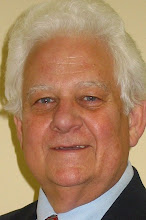When you suspect or have been told that you might have hearing loss, you might not know where to turn. If you are older than 50 and it is seems to be a gradual hearing loss, then you can assume it is due to old age. If you have been diagnosed with diabetes and you are younger, it could be related. Where do you turn?
Audiologists or Hearing Aid Practitioners are professionals that are specially trained for testing your hearing. They can determine whether you need to see a doctor because of your hearing loss, in the case it might be a medically related problem. An Audiologist is a doctorate level professional who is trained to diagnose auditory disorders, such as tinnitus
and can interpret testing results from VNGs and ABRs.
If they recommend you get hearing aids, some people will seek a medical opinion from a doctor to be sure and the FDA recommends it before you purchase hearing aids, if you are unsure of the diagnosis, but if you are coming close to the magic age of 50, chances are you need them or will before long.
The hearing loss that comes with aging happens gradually as the delicate parts of the system don't work quite as efficiently as they used to. Much like the vision loss that starts to become more obvious after the age of 40, hearing loss starts to surface after the age of 50. It can occur before then in those that have been subject to high decibel noise for prolonged periods, such as those that have worked all their lives in construction and landscaping where the daily work is noisy.
The Audiologist or Hearing Aid Practitioner will put you through a series of hearing tests to determine whether you have a problem and how bad it is. This is important when it comes to which treatment options you will need and whether it is treatable with medication, surgery or hearing aids and what kind you might be best suited for.
The hearing test will consist of an interview to find out about your lifestyle to determine noise exposure. Next, they will look for ear wax or other problems that might be causing the problem. Then you will go through sound testing where you will hear a series of beeps and words at different volume levels to determine where the hearing starts to become ineffective. After you go through the main hearing loss testing, a bone oscillator will be used to put you through the same tests to determine what type of hearing loss you have. You could have conductive, nerve loss or both, which is called mixed.
The final part of the hearing testing will involve a set of headphones that are used to see how good you will hear with hearing aids. You will be asked to repeat words in a series to see how well you understand them when they are amplified to the level you should be able to hear them. Some Audiologists and Hearing Aid Practitioners might put you through a series of other testing, but these are the main tests that are normally used to determine whether you have hearing loss and to what level the hearing loss is.
Tuesday, December 29, 2009
Subscribe to:
Post Comments (Atom)





Its Really very informative and useful information about hearing aids.these days most of people suffer from hearing loss without realizing it,If it is found that you have some hearing loss at particular frequencies he will most likely advise you that you should have a hearing aid to overcome this hearing loss.
ReplyDeleteThanks & Regards
Digital Hearing Aids